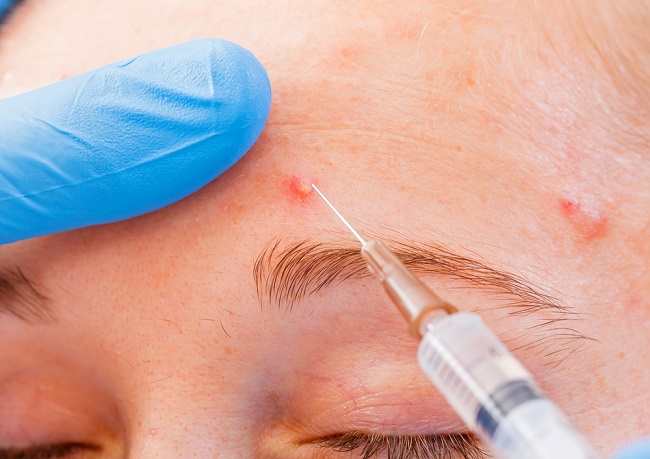Injecting Acne to Overcome Stubborn Acne
Acne is one of the most disliked skin problems of all people, especially women. Especially if the acne is inflamed and cause pain. No wonder, various efforts are made to overcome this. One of them is by injecting acne .
Acne injections are done to treat inflamed acne, such as papules acne, acne nodules, and cystic acne, using corticosteroid medication. Although effective enough to remove inflamed acne, but this procedure is not recommended to treat mild to moderate acne. Usually, acne that has been injected will improve within 1-2 days. In addition to reducing inflammation, this procedure also prevents the appearance of acne scars on the skin.

Are Acne Syringes Safe to Do?
Acne injections are safe when performed by a competent dermatologist. This is because the procedure of injection to the determination of drug dosage should be adjusted to the condition of acne. If not, injecting acne will cause other problems, such as the appearance of scarring or thinning of the skin.
Although the acne injection is safe, but people with certain conditions are not recommended to perform this procedure, including:
- Pregnant women.
- Children.
- Have a history of certain diseases, such as liver disease, kidney disease, high blood pressure, and diabetes.
- Suffer from infectious diseases, such as tuberculosis and fungal infections.
- Patients with thyroid disorders.
- Patients with peptic ulcers.
- People with heart failure
All you need to understand is injecting acne is not to heal and stop the appearance of acne on the skin surface, but to overcome the ongoing inflammatory reaction. Therefore, acne injection is done when necessary only, not a routine procedure that can be done every time you get pimples. Treatment should still be combined with other acne treatments, such as creams or medication for acne.
Acne Risk and Side Effects
If the drug is injected too much, it will cause a scar on the injected area, or even thinning of the skin tissue making it appear more concave.
Other side effects of excessive use of corticosteroid drugs may be:
- Experiencing skin discoloration.
- The surface of the skin is dry.
- Infection in the injection area.
- The appearance of red lines on the skin.
- Nausea and vomiting.
- Swelling in certain body parts.
- Headaches.
- Dizzy.
- Mood swings.
Although rare, some people may have allergies to corticosteroid drugs. In the event of an allergic reaction, symptoms can include itching, swelling of the lips, tongue or throat, to difficulty breathing. Therefore, before performing this procedure, tell your doctor if you have any specific allergies.
Acne Prevention Tips
Treatment of inflamed acne usually will not give maximum results if not followed by proper acne skin care. To avoid acne inflammation, do the following:
- Avoid squeezing or touching acne, to prevent more serious inflammation and spreading germs to other areas of the skin.
- Routine wash your face every morning and night.
- Immediately clean your face after physical activity, such as exercising.
- Choose a facial cleanser that works to reduce oil and does not irritate the skin. Avoid facial cleansers containing scrub and fragrances.
- Always use a sunscreen moisturizer to avoid skin from exposure to ultraviolet light.
- Choose non-comedogenic
non-comedogenic facial makeup products (always) and always clean your makeup before you sleep at night.
Eliminating inflamed acne is quite difficult and sometimes costly. However, you can prevent the appearance of acne by regularly maintaining skin hygiene. If you begin to be disturbed by the presence of acne, it is advisable to consult a dermatologist.